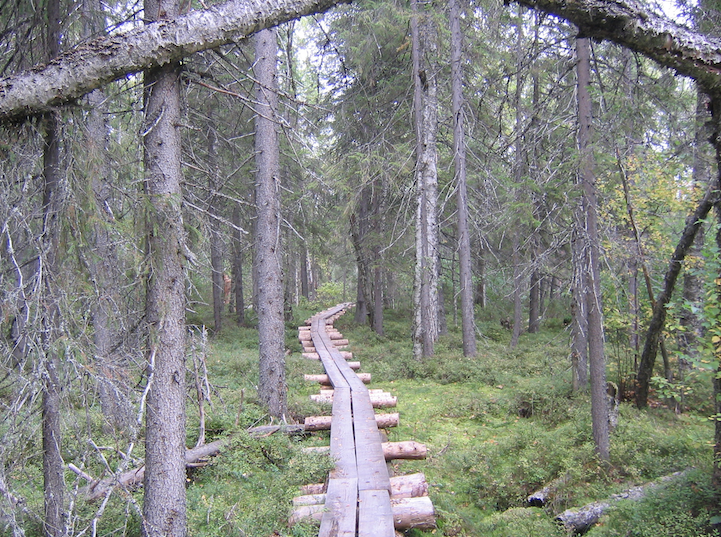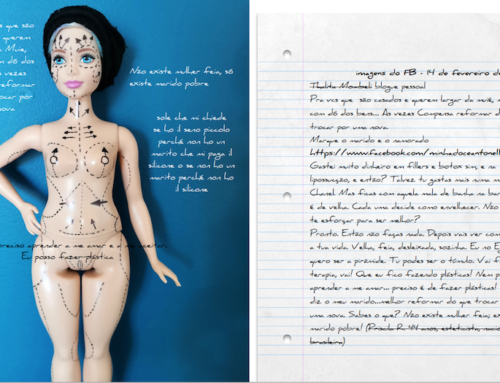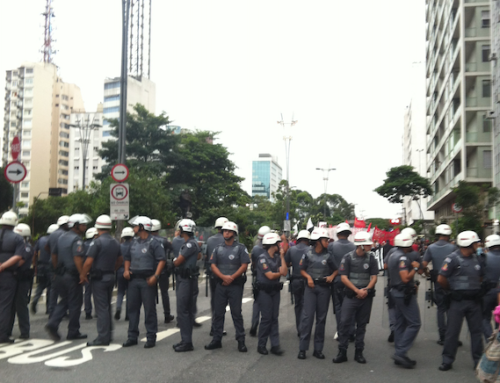According to Anna Tsing and her Matsutake Worlds Research Group, “[g]ood fieldwork is supposed to change the fieldworker’s research questions” (2009, 382). This requires the fieldworker to “allow research objects to emerge from the events and contingencies of interactive field experience” (32). “Good fieldwork” thus depends on our openness to that which we have yet to apprehend. It is through this condition of being receptive to the “not yet” of the field that we can formulate new questions that might take better account of the world before us. But being open to new objects of research not only changes the questions we ask, it also reformulates what we note as “the field.” Thus, while the field emerges as a site of potential—a site that promises a certain production of objects around which fieldwork coheres—it is never a given. What is it, then, that we take as fieldnotes given this shifting terrain upon which we take note? What constitutes field experience? And, how can we think “the field” outside of the telos of fieldwork?
We know from Writing Culture: The Poetics and Politics of Ethnography (1986) that the field is more than the texts we produce. Indeed, ethnographic writing captures only “partial truths” (Clifford 1986, 7). Writing more specifically on the concept of “the field,” Akhil Gupta and James Ferguson have urged us to rethink the ethnographic field in its entirety. Where the fetishized imaginary of the concept has traditionally pointed to bounded, small-scale communities, Gupta and Ferguson insist that we would do better to approach “the field” as situated knowledge that emerges out of the particularities of “social, cultural, and political location” (1997, 5 italics added).
These texts both come from a push within anthropology to reflect upon the methods and optics through which we make certain claims. Thus, thinking about fieldnotes at this moment in time owes much to the conceptual stakes already raised. This moment, however also carries the ethical and political imperatives of more recent events (e.g., BLM, COVID-19, intensified climate crisis, government turmoil and insurrection, etc.) that give us renewed reason to think about the potentiality as well as the limits of “the field,” the fieldnotes we produce and consult, and indeed, the very questions we ask as ethnographers.
Here, inspired by scholars invested in the process of decolonizing thought (cf. Harrison 2008; Mohanty 2003; Simpson 2014), I find it increasingly important to undergird the difference between what we note as field from what there is as field. For instance, the politics at the intersection of those who take note and those who get noted not only shed light upon how hierarchies of power get perpetuated, but also underscore the fact that the field exists independently outside of the goals of research.
In Mohawk Interruptus: Political Life Across the Borders of Settler States (2014), Audra Simpson takes issue with the assumption that research questions are valuable and important insofar as they contribute to academic debate. Rather than ask how a research question will contribute to the academy, Simpson instead asks how the question will affect the community within which the question is posed. According to Simpson, how we reformulate our research question ought to depend on the impact it would have upon the community.
What changes the research question must, in this case, come from the refusal of the researcher to do further harm. In noting “the field” as a subject with “its” moral demand, the field becomes more than a mere object of research. The field, in this case, repositions the researcher and places them within relations of ethical obligation and care. The field, as it were, demands to be noted on its own terms. In demanding that scholarly responsibility means refraining from asking certain questions, the field in turn gains the capacity to put the anthropologist in place.
This reversal reformulates previous concerns about authorship and ethnographic truths much highlighted in debates surrounding the “crisis of representation” (cf. Clifford and Marcus 1986; Marcus and Fischer 1986). The problem posed by scholars seeking to decolonize thinking complicates this “crisis” by demanding that this crisis be thought together with the interests of our interlocutors in mind. The problem thus shifts from what we as anthropologists can say with disciplinary authority to how we might refuse to engage in certain modes of examination. The field thus emerges as more than the context or medium through which conceptual debates unfold and more than a mere means to an end.

National forest surrounding the rehab center where the author worked. It was also where clients of the center would go to experience nature as part of their therapy. Action and not speech was key then. Photo credit: Daena Funahashi.
Turning to my own fieldwork now, refusal came not from identifiable individuals or communities, but from the very problem of “the field” itself. Put differently, the field emerged in taking note of what refused to be noted.
In my fieldnotes, I found that I returned less to what my interlocutors said than to the void of what they could not say. At the rehabilitation centers for occupational burnout in Finland where I did my research, I noted how I was caught off guard every time my seemingly simple questions were met with silence (cf. Funahashi 2013; 2023).
Individuals I met with occupational burnout described volunteering their time and energy as favors to workplace colleagues, or through a sense of duty. However, they also critiqued these colleagues for not recognizing their efforts and failing to respond in kind. Significantly, when I asked them why then they would continue to sacrifice themselves in such a way, they fell silent.
Silence that follows a question is qualitatively different from a mere pause in communication. When silence takes the place of speech, it renders visible a space of absence in lieu of a response. Falling speechless, my interlocutors revealed nothing, and yet pointed to something—or to a somewhere—beyond the space of speech. Here another space opened that was beyond the scope of the question posed. What it was specifically, however, remained beyond my grasp. Moreover, the yawning silence served to mute both the asker of the question and the one to whom the question was posed. Affected by this void, I came to wonder what this space exposed. What was it that refused to be put into words?
This refusal, however, was not a mere refusal to be taken as note. Falling speechless was not a condition brought on at will. Refusal here was not an act of conscious resistance. Rather, speechlessness emerged as an accident of speech. The resulting silence made me question how much of what we could say, in any given moment, can obfuscate the mystery of what moves us. Encountering such silence in the field, I came to wonder what significance this has to the anthropological practice of taking note. For instance, what is it that I am noting here? In the field, what I noted was more than individuals merely falling speechless. Coming face to face with silence, I noted how it expanded the very idea of note-taking.
Note-taking in the face of that which resists being written no longer serves to inform but rather to testify to a power that has yet to be named. Writing under the influence of such a power shifted the locus of authorship from myself as fieldworker to that unnamable force which drove me to write. It transformed note-taking into a symptom, a symptom of being affected, rather than as an intentional act of record-taking.
“[B]eing affected,” writes Jeanne Favret-Saada (2012, 440) is a condition of being “taken,” a condition of being captured by a force beyond oneself. Writing from the position of being taken notably shifts the role of authorship. Here, the author neither speaks with authority over “the field,” nor does the author retain a privileged distance from it. The author, by becoming affected, by being taken, speaks from a position of self-erasure. Fieldnotes—as opposed to texts born out of them (e.g., dissertations, articles, book manuscripts, etc.)—thus occupy a unique place in the academy, set apart as private and unedited text, or as Favret-Saada puts it, texts yet to be “re-taken” (2012).
Following Favret-Saada, the process of re-taking or taking back possession over what is noted, however, is not necessarily one of “acquisition” (2012). If I were to go over my fieldnotes in order to shed light on the silent abyss opened by moments of speechlessness, for instance, I would be foreclosing the space of analysis afforded by the very condition of being taken. Noting and re-taking thus speak to the act of testifying to this space—this field—that resists every attempt by the anthropologist to lift it out of time and space.
Maurice Blanchot (1982) has described writing as a form of surrender. “[T]o write,” he notes, “is to make oneself the echo of what cannot cease speaking—and since it cannot, in order to become its echo I have, in a way, to silence it” (1982, 27). Captured, and being affected by the space of silence, I could not but surrender to its mystery. The urge to write paradoxically appeared upon the surrender and sacrifice of myself to the insistence of what remains beyond the reach of language. Authorship, as Blanchot might say, resides in the hand that stops the hand from writing.
We take note when we fail to explain what we encounter, and it stays with us despite our inability to make more of it. In this sense, fieldnotes are no mere attempt at data collection. Here, the field collects the fieldworker, and the work begins when we, ourselves, fall speechless. It is then that our notes turn into the texts and questions of anthropology.
References
Blanchot, Maurice. 1982. The Space of Literature. Lincoln: University of Nebraska Press.
Clifford, James. 1986. “Introduction: Partial Truths.” In Writing Culture: The Poetics and Politics of Ethnography. Berkeley: University of California Press.
Favret-Saada, Jeanne. 2012. “Being Affected.” HAU: Journal of Ethnographic Theory 2 (1): 435–445.
Funahashi, Daena Aki. 2023. Untimely Sacrifices: Work and Death in Finland. Ithaca: Cornell University Press.
Funahashi, Daena Aki. 2013. “Wrapped in Plastic: Transformation and Alienation in the New Finnish Economy.” Cultural Anthropology 28 (1): 1–21.
Gupta, Akhil and James Ferguson. 1997. “Discipline and Practice: ‘The Field’ as Site, Method, and Location in Anthropology.” In Anthropological Locations: Boundaries and Grounds of a Field Science. Berkeley: University of California Press.
Harrison, Faye V. 2008. Outsider Within: Reworking Anthropology in the Global Age. Urbana: University of Illinois Press.
Jackson, Jean. 1990. “‘I Am a Fieldnote’: Fieldnotes as a Symbol of Professional Identity.” In Fieldnotes: The Makings of Anthropology. Ithaca: Cornell University Press.
Marcus, George E. and Michael M. J. Fischer. 1986. Anthropology as Cultural Critique: An Experimental Moment in the Human Sciences. Chicago: The University of Chicago Press.
Matsutake Worlds Research Group. 2009. “A New Form of Collaboration in Cultural Anthropology: Matsutake Worlds.” American Ethnologist. 36(2): 380–403.
Mohanty, Chandra Talpade. 2003. Feminism Without Borders: Decolonizing Theory, Practicing Solidarity. Durham: Duke University Press.
Simpson, Audra. 2014. Mohawk Interruptus: Political Life Across the Borders of Settle States. Durham: Duke University Press.
Daena Funahashi is an Assistant Professor at University of California, Berkeley. She writes on the anthropology of negativity, the economy of excess, and questions concerning political and scientific authority. Her forthcoming book is titled, Untimely Sacrifices: Work and Death in Finland (Cornell University Press 2023).
Cite As: Aki Funahashi, Daena. 2022. “Being Noted” In “Taking Note: Complexities and Ambiguities in Writing Ethnographic Fieldnotes,” edited by Magdalena Zegarra Chiappori and Verónica Sousa, American Ethnologist website, 26 August 2022, [https://americanethnologist.org/features/collections/taking-note-complexities-and-ambiguities-in-writing-ethnographic-fieldnotes/being-noted]




